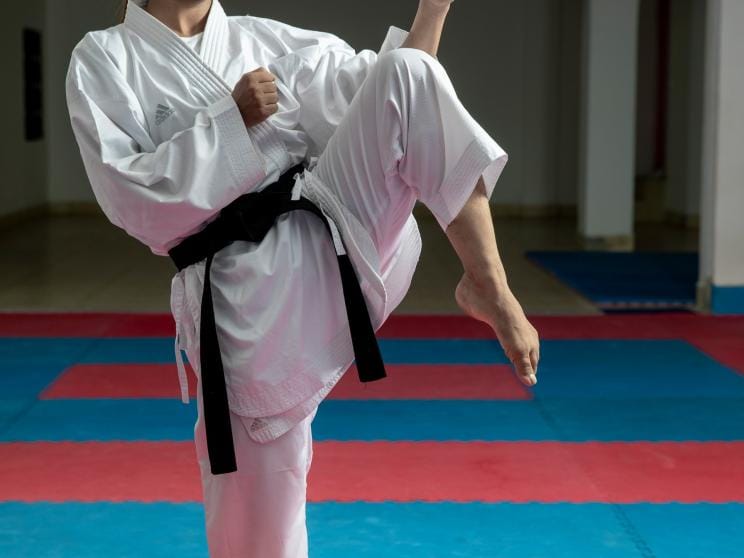6 essential self-defence moves every girl needs to know

In today's fast-paced world, feeling secure and prepared to face unexpected situations is essential. While we all hope never to be in a position where self-defence is necessary, knowing a few effective techniques can make all the difference.
Here are 6 easy, yet highly effective self-defence techniques that anyone can learn, complemented by insights from Humaira Akhter Antara, a seasoned karate practitioner.
We might never need to use these skills, but having them can change the way we move through the world. It's more about living freely and confidently rather than just surviving. Remember, your safety is worth every effort, and empowering yourself in this way is a gift that can last a lifetime.

#1. The power of awareness
"Always scan your surroundings and strategise ahead," advises Humaira. Being aware of your surroundings is the best preventive measure. Trust your instincts – if something feels wrong, act by avoiding the threat or seeking help. Remember, the best fights are the ones you can avoid!
#2. The strategic punch
When it comes to physical defence, a strategic punch can be surprisingly effective.
"Target main vulnerable areas such as the mouth, nose, neck, and throat when striking. A precise, swift punch to these spots can disable an attacker long enough for you to escape," Humaira recommends.
Remember, targeting these vulnerable areas with the base of your palm reduces the risk of injuring your fingers.
#3. The heel kick and knee jab
Another set of techniques Humaira emphasises involves the lower body.
"Utilise your lower body strength effectively. A sharp knee to the groin or a robust heel kick to the leg can incapacitate an attacker, tipping the scales in your favour," she says.
The groin is a particularly sensitive area, making it a prime target in close encounters. A forceful knee jab here can weaken an attacker long enough for you to make your getaway. Similarly, a heel kick aimed at the attacker's leg or foot can cause pain and imbalance, aiding your escape.

#4. The defensive use of fingers
One often underestimated technique involves using your fingers as a defensive tool.
"In close encounters, thrust your fingers towards the attacker's eyes with force. This aggressive defence can cause immediate disorientation, giving you a vital chance to flee," suggests Humaira. This can be one of the most effective distractions, allowing you enough time to escape.
Eye gouges are not subtle moves and should be used with the seriousness they entail. This act is instinctual and effective, creating an immediate need for the attacker to react, which can create a moment for you to escape or attract attention for help.
#5. The escape from a wrist hold
Being grabbed can be terrifying but there's a reliable way to break free. If someone grasps your wrist, your best move is to make your arm rigid and rotate it towards the thumb of the person's grip.
As the thumb is the weakest part of the hand, this movement can break their grasp, allowing you to pull away quickly. Practice with friends or family to master the twist and pull technique effectively.
#6. Utilise common items for defence
"Familiarise yourself with simple yet effective techniques using everyday items," says Humaira, adding, "Whether it's wielding a pen with precision, spraying chilli powder for temporary blindness, or discreetly carrying a small knife, each can be a useful tool for defence. Practice regularly to enhance your readiness and effectiveness."
Everyday objects can transform into defensive tools in moments of need. A pen can be used to stab at soft targets. Chilli powder, on the other hand, can obscure vision and cause respiratory distress, and a small knife can be a deterrent. Nevertheless, the use of any weapon must be handled with the understanding of legal and ethical implications.
Disclaimer: The self-defence techniques described in this article are intended for personal safety and self-defence purposes only. They should be used responsibly. Practising these techniques under professional guidance is recommended to ensure proper application.



 For all latest news, follow The Daily Star's Google News channel.
For all latest news, follow The Daily Star's Google News channel.
Comments